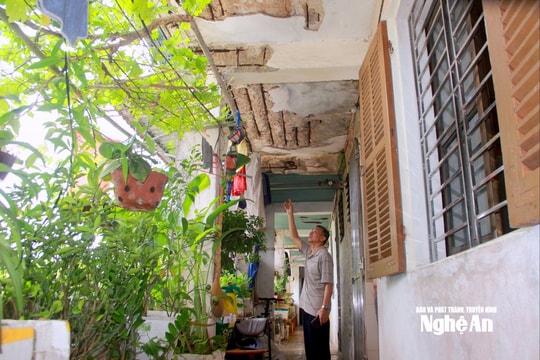Kings in Vietnamese history humbled themselves and admitted their mistakes
The king is supreme, considered the son of heaven and always right, but some have "bravely" admitted their mistakes to their subjects when they see they are wrong.
King Le Thanh Tong apologized to his subjects.
Le Thanh Tong (1442 - 1497) was the 5th king of the Le So dynasty, considered the most enlightened king in our country's history. During his 38 years of reign, Dai Viet developed brilliantly in all aspects from economy, culture, society, education, military and became a great power.
According to historians, in addition to his intelligence, King Le Thanh Tong was very studious and inquisitive. He was even not afraid to admit his mistakes and apologize to his subjects. The book Dai Viet Su Ky Toan Thu wrote that once, the National University Te Tuu Giam and Van Minh Dien Dai Hoc Si, Nguyen Ba Ky, frankly submitted a memorial about the king's literary work favoring superficial and useless learning without paying attention to the classics and history.
King Le Thanh Tong did not mind and replied: "If I favored literature and did not take the classics and history as my base, what books would I have? I examined myself and what you said, and in those four words 'useless vanity', loyalty was already included. Yet I wrote an essay to argue against it, so I was truly at fault. At that time, you promptly stopped me, so I did not hold back."
King Le Thanh Tong, because he respected Nguyen Ba Ky's talent and virtue, bestowed upon him the title "Mr. Van Phong". When he died, the king sent the Tu Le Giam Quan Pham Ho with an edict saying: "You served the king loyally, kept yourself upright, and were by my side day and night. Now it has been 6 years, and now you are on your last breath, but your loyalty has not wavered".
 |
Bronze statue of King Le Thanh Tong. Photo: Wikipedia |
Another time, in 1467, there was a rebellion in the Northeast region. General Le Hoi and Admiral Khuat Da led troops to quell the rebellion but were defeated and were brought to trial. The Minister of Justice cited the eight-rule rule (eight categories of people are given special consideration and their sentences are reduced) and intended to pardon these two people.
The Imperial Censor Tran Xac agreed and reported to the king: "In the past, only the crimes of great evil and rebellion were not allowed to enjoy the eight-rule rule. I have never seen an official who committed a common crime not enjoy this rule." Le Thanh Tong replied: "There is only one military law, not two. Saying what Xac said is just an excuse, confusing people. Xac should be punished for this crime."
However, immediately after that, the king had an edict to admit his mistake: "I falsely accused you of being a debater who tried to deceive people. That was my mistake. Now, if you have any good plans, please tell me. It is like sweet rain coming during a drought, like a boat coming when I need to cross a river. Please remember that."
Historians assessed that the Censor General Tran Xac was an upright person, had a firm grasp of the law, and dared to say words that were not pleasing to the king. In a moment of haste, Le Thanh Tong could not keep to the usual rules, but the king was still able to think again, bravely admitted his mistake, and sincerely asked to listen to more straightforward words, which was very respectable.
King Quang Trung admitted his mistake
Quang Trung (1753-1792) was a king with many illustrious achievements and was also praised for his intelligence and talent. Among the many stories about his outstanding talent, there was an incident that showed that the king was very open to learning. That was his response to the "petition" of the villagers of Van Chuong in Thang Long.
According to historian Tran Van Giap, in 1789, after King Quang Trung defeated the Qing army, the people of Van Chuong village (near the Temple of Literature) submitted a petition. The content talked about how in 1786, the Thang Long Temple of Literature was burned down, and the stone steles were trampled and destroyed.
The petition clearly stated: "The Doctor's stele was innocent/ But was implicated in the citadel fire/ The stele was trampled/ The stele house was burned to ashes". The petition also blamed King Quang Trung: "A long-lasting culture/ Unfortunately, we have not yet received your visit".
Reading the memorial, King Quang Trung was surprised because it was not written in the usual memorial format but was written by a Confucian scholar in Nom script according to his preferences. On the other hand, although the memorial raised suspicions about Trinh Khai's army destroying the stele, it was actually to avoid saying that Tay Son army destroyed the Temple of Literature in order to avoid offending the king. The memorial did not even call the king "Your Majesty" but instead called him "Your Majesty", implicitly showing his dissatisfaction.
 |
Statue of Emperor Quang Trung at Quang Trung Museum (Binh Dinh province). Photo: Wikipedia |
King Quang Trung did not ignore or send someone to investigate who had the audacity to write that petition and who participated in the request to rebuild the stele, and the emperor immediately signed the petition: I do not blame the farmers/ I only despise the Confucian teacher/ Who is so bold, daring to call the King "Your Majesty"! Who is the Confucian teacher? Order the Ministry to ask, the people to answer.
King Quang Trung did not question further but went straight to the essential issue that needed to be resolved, specifically, he immediately put the imperial edict and the district's advice on that Nom petition: "Enough! Enough! Enough! The matter is done / Let's blame it on me for a hundred things! Tomorrow and tomorrow we will clean up the country / The Nghe stele will be erected on the throne of a thousand evils / The Trinh family's foundation has been destroyed / Don't blame Trinh Khai and cause injustice for all eternity".
According to historians, in response to the people's "petition", the king did not beat around the bush but frankly accepted responsibility and promised to repair the Temple of Literature. By doing this, King Quang Trung truly demonstrated the courage and frankness of a wise king.
King Ly Cao Tong issued an edict of repentance.
As the 7th king of the Ly dynasty, Cao Tong (1173-1210) ascended the throne at the age of 3 with the help of Grand Chancellor To Hien Thanh. Growing up, when he directly ruled the country, Cao Tong was fond of hunting, the law and order were unclear, he robbed the people to build many palaces, forced hundreds of people to serve, so robberies arose everywhere.
The book Dai Viet Su Ky Toan Thu recorded: "The king indulged in debauchery without moderation, the law and order were unclear, bandits were rampant, famine continued for years, and the Ly dynasty's foundation declined from then on...". It was not until 1207 that the king, seeing the bandits and robbers, repented and issued an edict admitting his mistakes.
The book Dai Viet Su Luoc recorded that edict: "I am still young but have to shoulder great responsibilities, living far away in the ninth heaven, not knowing the hardships of the people, listening to the words of petty people and causing resentment among the subordinates. If the people resent me, who can I rely on? Now I will correct my mistakes, and reform with the people. Whoever has land and property confiscated will have it returned."
With the apology edict, Ly Cao Tong was considered the first king in the feudal history of Vietnam to "dare" to humble himself and apologize to the people, but 1207 was the last year of this king's life. Three years later, Ly Cao Tong passed away in a chaotic country and the court had to rely entirely on the power of the Tran family. Therefore, the king's apology edict was considered by historians as too late and only regret for the sake of regret without taking any measures to rectify the situation or the situation was too bad to change.
According to VNE


.jpg)

.jpg)
.jpg)


